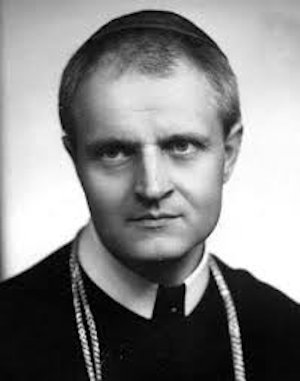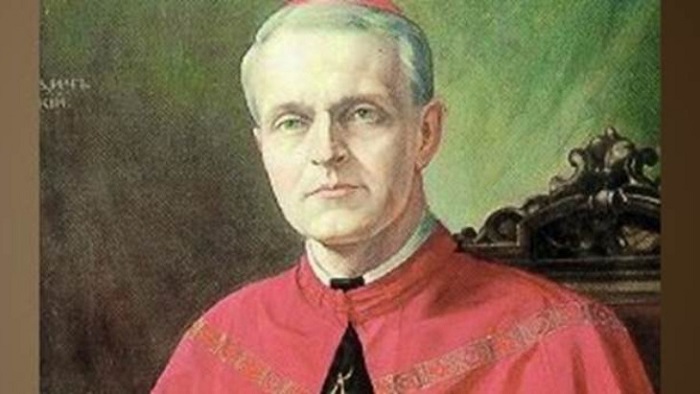This is the story of a righteous gentile and his unsaintly nemesis. Pavel Peter Gojdic, a humble Catholic monk, was born in 1888 in Slovakia, where he served as resident bishop during World War II and a friend of the Jews who saved many lives.
Nazi Germany occupied the region in 1938 and quickly went about issuing anti-Jewish orders. Local authorities cooperated, limiting Jews’ freedom of movement and excluding Jewish children from non-Jewish schools.

At personal risk as apostolic administrator, Gojdic openly spoke up in favor of Jews from the beginning of their persecution in Slovakia. “On January 25, 1939, two days after the establishment of a special committee by the Slovak autonomist government charged with defining the program for the solution of the Jewish question, the bishop wrote a special letter addressed to all parishes in his Presov diocese,” wrote Yad Vashem, Israel's Holocaust museum.
“In this letter he warned about disastrous results which might be caused by these discriminative policies. He reminded people of the basic principles of their belief – that every human being has equal rights when he faces God. He also warned of the consequences of Nazi ideology and racism.”
Gojdic's activities did not sit well with the fascist Slovak state. Fellow priests turned on him. In the summer of 1939 they wrote a memorandum expressing their dissatisfaction with Gojdic’s actions. He resigned a few months later.
In 1940 the Vatican accepted his resignation from the position of apostolic administrator, but at the same time appointed him as bishop of the Presov, Slovakia, diocese. This only increased the tension between him and the government.
Nemesis Condemns Slovak Jewry to Destruction
Meanwhile, Slovakia’s new president, Jozef Tiso – also a priest – began expropriating Jewish property and deporting Jews to German-occupied Poland. He resisted most pressure from the Vatican and Jewish groups to end deportations.
Historian James Mace Ward, a visiting Fellow at the United States Holocaust Memorial Museum, cited a conversation in which Tiso regretted exempting 18,000 Jews from expropriation and deportation, due to his belief that they were sabotaging the economy.
Tiso Hanged
Ward’s research portrays Tiso as a man who helped condemn Slovak Jewry to destruction. Ultimately, Tiso met a violent fate himself. After World War II ended, a reunified Czechoslovakia convicted and hanged him for treason, suppression of freedom and crimes against humanity.
Despite posthumous efforts to brand Tiso a saint, Ward concluded that he was no saint.
On the other hand, Bishop Gojdic helped refugees, prisoners and inmates of concentration camps, and became known as “the man with a heart of gold.” He is credited with directly or indirectly saving as many as 1,500 Jews.
Righteous Gentile Saved Countless Lives
In 2007 Yad Vashem recognized Bishop Gojdic as one of its Righteous Among the Nations. Its webpage about him reports: “On October 26, 1942, the Slovak Security Services informed the 14th Department of the Ministry of Interior about a high number of fictitious conversions taking place. The report pointed out several cases when only one member of a Jewish family converted to Christianity in order to defend his whole family. Out of 249 Jewish families only 533 Jews converted to Greek Catholic or Russian Orthodox faith in order to rescue another 1500 members of their families, who did not convert. Apart from that, most of those who had converted continued to actively pursue Judaism either in an open or a hidden manner.”
Refusing to renounce his religion, he was given a life sentence for treason by the Communist state,Czechoslovakia.
Though he survived the Nazis, Bishop Gojdic endured a life sentence in prison when the Communist regime made the Greek Catholic Church illegal. The many letters written by Jews who were grateful for his work had no effect on this sentence. He died from cancer in the prison hospital of Leopoldov Prison in 1960, on his 72nd birthday.
[Published on Aish.com, August 23, 2021]

